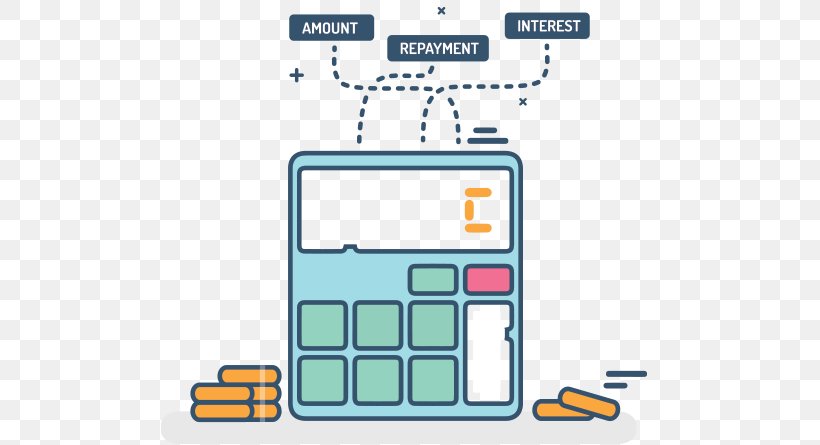
A collection agency can be a great help in collecting a debt from a customer, but there are some things you should know before hiring one. Make sure the agency is licensed and bonded. Referring agencies are also an option. You also need to make sure the collectors you are able to negotiate effectively.
Licensing
Before you can begin working as a collection agency, you will need a license. Many states require licensed agencies have a resident manager, a physical office and a bond against loss. The application fee for a license can vary from one state to the next. It can cost up to $1500 depending on which state you are applying. Most states require that licenses be renewed at least once a year. A failure to renew a license on a regular basis can result in civil or criminal penalties. This license is constantly under revision, so it is crucial to ensure that your collection agency is current.
The requirements for obtaining licenses will vary depending on the state where you live, and the type or agency that you intend to run. You will need a bond for each of your locations if you have multiple locations. A bond is an important way for clients to be protected and to make sure you adhere to state regulations. This can prevent future headaches.

Bonding
You must file a bond with the state if you intend to open a collection agency. These bonds are established at the state level and are determined based on your business' financials and credit rating. A Bonding Services agent can help you apply for bonding. There are many agencies available in New York.
A collection agency bond is required to protect the rights of clients and ensure the agency's legal operations. The agency could face a lawsuit if they fail to obtain a bonds in violation of state regulations. A bond can also serve as defense against harassment and unjustified threats to collect debt. State laws differ in their requirements for collection agency bonds, and you can find them listed in the state license guide when you apply for one.
Cost
There are several factors that affect the cost and amount of a collection agency bonds. First, the amount of the bond will depend on the legal precedent of the state in which the agency is licensed. The coverage of surety insurance will differ. Higher levels of insurance require higher premiums. A third factor that will affect the cost of a collection bond is the experience and credit score of the debt collector.
A contingency fee is another important consideration. Most cases the fees are based upon a percentage the amount that was recovered. Keep in mind, however, that not all debts can be collected as quickly. A small account will cost more to pursue than one with a large balance.

Credit scores and their effects
A collection agency can have dramatic effects on credit scores. A collection agency could report a missed payment and cause a credit score drop of up to 110 points. Another missed payment could lead to a 115 point drop. A collection agency's impact upon a credit score can be affected by many factors.
The time that the debt has been delinquent is the most important. The longer the debt has been in arrears, the worse the impact. A 90-day late payment may have a negative impact upon your score.
FAQ
How much debt are you allowed to take on?
It's essential to keep in mind that there is such a thing as too much money. Spending more than what you earn can lead to cash running out. This is because savings takes time to grow. If you are running out of funds, cut back on your spending.
But how much is too much? Although there's no exact number that will work for everyone, it is a good rule to aim to live within 10%. That way, you won't go broke even after years of saving.
This means that even if you make $10,000 per year, you should not spend more then $1,000 each month. You shouldn't spend more that $2,000 monthly if your income is $20,000 If you earn $50,000, you should not spend more than $5,000 per calendar month.
The key here is to pay off debts as quickly as possible. This includes credit card bills, student loans, car payments, etc. You'll be able to save more money once these are paid off.
It's best to think about whether you are going to invest any of the surplus income. If you choose to invest your money in bonds or stocks, you may lose it if the stock exchange falls. But if you choose to put it into a savings account, you can expect interest to compound over time.
As an example, suppose you save $100 each week. That would amount to $500 over five years. Over six years, that would amount to $1,000. In eight years, you'd have nearly $3,000 in the bank. In ten years you would have $13,000 in savings.
At the end of 15 years, you'll have nearly $40,000 in savings. It's impressive. However, this amount would have earned you interest if it had been invested in stock market during the exact same period. Instead of $40,000, you'd now have more than $57,000.
It's crucial to learn how you can manage your finances effectively. If you don't do this, you may end up spending far more than you originally planned.
Why is personal finances important?
A key skill to any success is personal financial management. We live in a world that is fraught with money and often face difficult decisions regarding how we spend our hard-earned money.
So why should we wait to save money? What is the best thing to do with our time and energy?
The answer is yes and no. Yes, because most people feel guilty when they save money. Yes, but the more you make, the more you can invest.
As long as you keep yourself focused on the bigger picture, you'll always be able to justify spending your money wisely.
It is important to learn how to control your emotions if you want to become financially successful. You won't be able to see the positive aspects of your situation and will have no support from others.
Also, you may have unrealistic expectations about the amount of money that you will eventually accumulate. This is because your financial management skills are not up to par.
After mastering these skills, it's time to learn how to budget.
Budgeting is the act of setting aside a portion of your income each month towards future expenses. Planning will help you avoid unnecessary purchases and make sure you have enough money to pay your bills.
Now that you understand how to best allocate your resources, it is possible to start looking forward to a better financial future.
What is personal financial planning?
Personal finance means managing your money to reach your goals at work and home. It is about understanding your finances, knowing your budget, and balancing your desires against your needs.
If you master these skills, you can be financially independent. This means you are no longer dependent on anyone to take care of you. You're free from worrying about paying rent, utilities, and other bills every month.
It's not enough to learn how money management can help you make more money. It makes you happier overall. When you feel good about your finances, you tend to be less stressed, get promoted faster, and enjoy life more.
So who cares about personal finance? Everyone does! The most searched topic on the Internet is personal finance. Google Trends reports that the number of searches for "personal financial" has increased by 1,600% since 2004.
Today's smartphone users use their phones to compare prices, track budgets and build wealth. These people read blogs like this one and watch YouTube videos about personal finance. They also listen to podcasts on investing.
Bankrate.com says that Americans spend on the average of four hours per day watching TV and listening to music. They also spend time surfing the Web, reading books, or talking with their friends. This leaves just two hours per day for all other important activities.
You'll be able take advantage of your time when you understand personal finance.
What side hustles can you make the most money?
Side hustles can be described as any extra income stream that supplements your main source of income.
Side hustles are important because they make it possible to earn extra money for fun activities as well as bills.
Side hustles not only help you save money for retirement but also give you flexibility and can increase your earning potential.
There are two types. Side hustles that are passive include side businesses such as blogging, e-commerce and freelancing. Some examples of active side hustles include dog walking, tutoring and selling items on eBay.
The best side hustles make sense for you and fit well within your lifestyle. Consider starting a business in fitness if your passion is working out. If you love to spend time outdoors, consider becoming an independent landscaper.
There are many side hustles that you can do. Consider side hustles where you spend your time already, such as volunteering or teaching classes.
One example is to open your own graphic design studio, if graphic design experience is something you have. Or perhaps you have skills in writing, so why not become a ghostwriter?
Be sure to research thoroughly before you start any side hustle. You'll be ready to grab the opportunity when it presents itself.
Remember, side hustles aren't just about making money. Side hustles can be about creating wealth or freedom.
There are so many ways to make money these days, it's hard to not start one.
What is the easiest passive source of income?
There are many online ways to make money. But most of them require more time and effort than you might have. How do you make extra cash easy?
The answer is to find something you love, whether blogging, writing, designing, selling, marketing, etc. Find a way to monetize this passion.
For example, let's say you enjoy creating blog posts. You can start a blog that shares useful information about topics in your niche. You can then sign up your readers for email or social media by inviting them to click on the links contained in your articles.
This is affiliate marketing. There are lots of resources that will help you get started. Here are some examples of 101 affiliate marketing tools, tips & resources.
A blog could be another way to make passive income. It's important to choose a topic you are passionate about. You can also make your site monetizable by creating ebooks, courses and videos.
Although there are many ways to make money online you can choose the easiest. You can make money online by building websites and blogs that offer useful information.
After you have built your website, make sure to promote it on social media platforms like Facebook, Twitter and LinkedIn. This is known as content marketing and it's a great way to drive traffic back to your site.
How can a beginner make passive income?
Begin with the basics. Next, learn how you can create value for yourself and then look at ways to make money.
You may even have a few ideas already. If you do, great! But if you don't, start thinking about where you could add value and how you could turn those thoughts into action.
Online earning money is easy if you are looking for opportunities that match your interests and skills.
You can create websites or apps that you love, and generate revenue while sleeping.
If you are more interested in writing, reviewing products might be a good option. Or if you're creative, you might consider designing logos or artwork for clients.
No matter what you choose to concentrate on, it is important that you pick something you love. This will ensure that you stick with it for the long-term.
Once you've found a product or service you'd enjoy helping others buy, you'll need to figure out how to monetize it.
This can be done in two ways. One is to charge a flat rate for your services (like a freelancer), and the second is to charge per project (like an agency).
You'll need promotion for your rates in either case. This means sharing them on social media, emailing your list, posting flyers, etc.
Keep these three tips in your mind as you promote your business to increase your chances of success.
-
When marketing, be a professional. You never know who may be reading your content.
-
Know your subject matter before you speak. False experts are unattractive.
-
Do not spam. If someone asks for information, avoid sending emails to everyone in your email list. Do not send out a recommendation if someone asks.
-
Use an email service provider that is reliable and free - Yahoo Mail and Gmail both offer easy and free access.
-
You can monitor your results by tracking how many people open your emails, click on links and sign up to your mailing lists.
-
You can measure your ROI by measuring the number of leads generated for each campaign and determining which campaigns are most successful in converting them.
-
Ask your family and friends for feedback.
-
Try different strategies - you may find that some work better than others.
-
Continue to learn - keep learning so that you remain relevant as a marketer.
Statistics
- These websites say they will pay you up to 92% of the card's value. (nerdwallet.com)
- While 39% of Americans say they feel anxious when making financial decisions, according to the survey, 30% feel confident and 17% excited, suggesting it is possible to feel good when navigating your finances. (nerdwallet.com)
- 4 in 5 Americans (80%) say they put off financial decisions, and 35% of those delaying those decisions say it's because they feel overwhelmed at the thought of them. (nerdwallet.com)
- As mortgage rates dip below 7%, ‘millennials should jump at a 6% mortgage like bears grabbing for honey' New homeowners and renters bear the brunt of October inflation — they're cutting back on eating out, entertainment and vacations to beat rising costs (marketwatch.com)
- According to the company's website, people often earn $25 to $45 daily. (nerdwallet.com)
External Links
How To
How to make money online
How to make money online today differs greatly from how people made money 10 years ago. It is changing how you invest your money. There are many ways you can earn passive income. However, some require substantial upfront investment. Some methods are more difficult than others. However, there are many things you need to do before investing your hard-earned funds in anything online.
-
Find out what kind of investor you are. PTC sites are a great way to quickly make money. You get paid to click ads. Affiliate marketing is a better option if you are more interested in long-term earnings potential.
-
Do your research. Research is essential before you make any commitment to any program. You should read reviews, testimonials, as well as past performance records. You don't want to waste your time and energy only to realize that the product doesn't work.
-
Start small. Do not just jump in to one huge project. Instead, begin by building something basic first. This will allow you to learn the ropes and help you decide if this business is for you. Once you feel confident enough, try expanding your efforts to bigger projects.
-
Get started now! It's never too early to begin making money online. Even if a long-term employee, there's still time to build up a profitable portfolio of niche websites. All you need to get started is an idea and some hard work. You can take action right now by implementing your ideas.